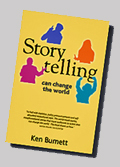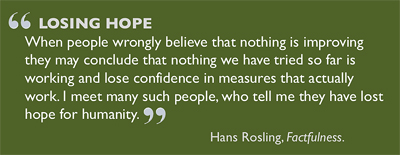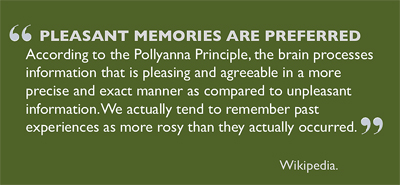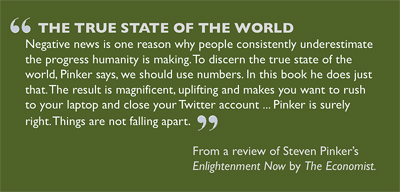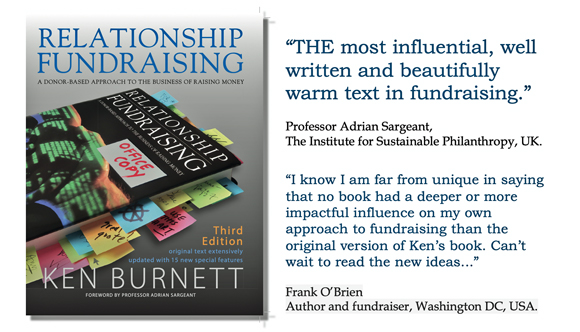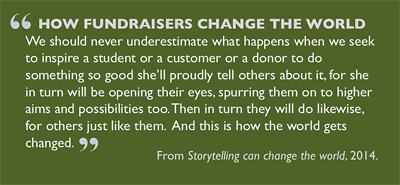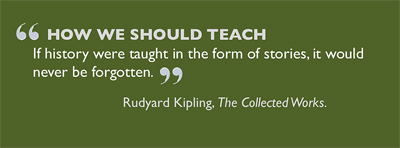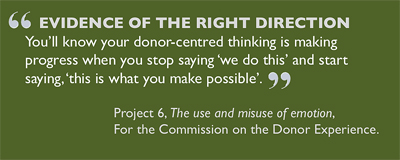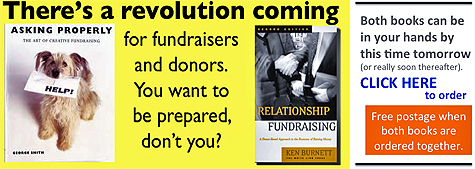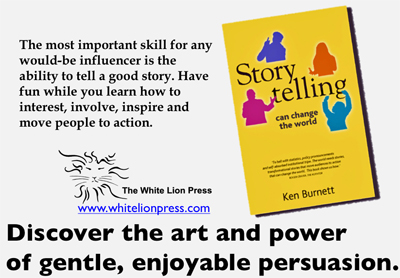|
Blog 16th April 2018 It’s a mystery why fundraisers inflict such endless distress on their audiences, particularly when things are going so well in the world. The truth is, our donors have accomplished such a lot that’s really worth shouting about. Even the most educated, well-informed of people have a shockingly negative view of the world and the relative plight or wellbeing of most of its inhabitants. If giving is a good experience, donors will do more of it. If it isn’t, they’ll soon stop.
|
‘These charity ads are dreadful’, wailed Harriet. ‘It’s one misery after another. They depress the living daylights out of daytime television, really they do. I have to listen to the radio to get away from them and even that doesn’t always work, they still pop up.’ I know what she means. It’s a mystery why fundraisers inflict such endless distress on their audiences, particularly when things are going so well in the world. Many would see that last phrase as a touch controversial. Particularly those, Hans Rosling tells us, whose world view is stuck back somewhere around 1965. Which, according to his book, Factfulness, is most of us. Seriously. It seems our species is predisposed, preconditioned even, to see the world mostly as it was 40 or even 50 years ago, ie, bad and getting worse. The reality, Rosling and Co claim they can simply demonstrate, is dramatically different*.
I’ve long been a fan of Hans Rosling, author, TED talker, statistician, sword-swallower and alleged Pollyannaist, who sadly died last year. See page 48 of my 2014 book Storytelling can change the world. Rosling is widely acknowledged as a presenter par excellence, adept at using statistics, truth and stories to make us think and rethink. How it’s possible that most people today are walking around with a decades-out-of-date worldview is one of the many fascinating insights of Rosling’s latest – and last – book. I can’t do more than touch the surface here. Suffice to say it’s not surprising that most people living in the world’s affluent areas (who Rosling terms as level 4 people, the ‘rich consumers’) have world views that are way off-balance. It’s because our first-hand experiences are invariably seen from the perspective of consistent privilege and our second-hand experiences are filtered through the mass media, which, Hans says, ‘loves non-representative extraordinary events and shuns normality.’ Because of this, those who live at level 4 (roughly 1 billion of us) struggle to understand the reality of those at levels 1, 2 and 3 (the other 6 billion). And perhaps, for the most part, always will.
Back when I was a raw newcomer to fundraising the commonly accepted philosophy was that people applaud achievement but give to need. There’s truth in this, of course. And maybe by presenting gloomy vistas we’re simply addressing our audience in the way they’ll most easily understand (another mantra drummed into me in those early days was, ‘talk to people where they are, not where you want them to be’). Again, seems sensible and has served us well. But increasingly I feel we need to revise these tablets of stone and to change the perceptions behind them, because the world is changing and the expectations of sophisticated donors are changing too. The truth is, our donors have accomplished such a lot that’s really worth shouting about. (NB, despite so often giving contrary impressions, we and our organisations are not solely responsible for all that’s been achieved. It’ll pay us to give regular credit to donors, so they get something in return for all they give us.)
According to philosophers and statistics-studiers such as Rosling and Pinker our species suffers from something Rosling calls ‘the Negativity Instinct’, the tendency to imagine that things are much worse than they are and are deteriorating rapidly. I first went to Africa in 1978 and toured some of the world’s poorest, most dire places. What knocked me from my preconceptions was how happy and cheerful most people were, how generous, welcoming too and positive about the good things that were coming to their village (mostly basic necessities we’d not think twice about). I returned to the prevailing paradigm of poverty alleviation promotion that dictated images must be black and white, its ‘victims’ should never be seen smiling and needs must always be emphasised both ahead of and after any mention of achievements. Though gradually these views have changed, they still persist and often dominate. Continued top of column 2, above. *Footnote: Some of the good news cited by Rosling and others includes far fewer people now living in poverty, child mortality dramatically reduced, life expectancy, access to clean water, health care and electricity all increasing, as is access to education for both boys and girls, not just in some countries but almost everywhere.
|
Continued from column 1, below. The reality is even the most educated, well-informed of people have a shockingly negative view of the world and the relative plight or well-being of most of its inhabitants. Both Rosling and Pinker go to great lengths to evidence this in their books and I won’t attempt to even paraphrase them here. I would recommend you have a look, as they’re challenging and informative, though be aware their views do merit some qualification and are not without decriers and naysayers. What’s this got to do with fundraising? Well, I’m convinced we need to tell our stories differently – much better and more positively too. I’ve even written a book about it. Telling our stories better means celebrating progress and achievements creatively, every bit as much as alerting people to real needs and genuine wrongs that need righting. As well as optimists who believe it’s better to light a single candle than to curse the darkness, we should encourage and convince the public to see us as practical, effective doers. We should seek to be seen as competent, qualified, good news-spreaders, purveyors of life-affirming opportunities to make a difference, not as Cassandra-like prophets of doom, gloom and despair. Let’s tell our donors, with vim and vigour, about the good things they make happen.
For many if not most donors the causes they support are part of the fabric of their lives. Like it or not, whatever fundraisers say or do they could never imagine not supporting them. Their giving is a vital part of who they are. So rather than persuade, fundraisers need to inspire, inform and encourage. Yet donors too often give in spite of fundraisers, not because of them. Donors shouldn’t feel they need to turn off their TVs or cross the road to avoid fundraisers for fear of gloominess, persistence, pressure, or hard sell.
We should never hassle people nor make them feel guilty or bad. Nor do we want donors to give us their spare loose change in the hope we’ll go away. We can avoid these if we deliver real content that’s welcomed because of its brightness, usefulness and appropriateness, that offers fulfilment, meaning and opportunities to make real differences. Fundraisers should be synonymous with warm glows and good feelings that come from the gripping, uplifting tales we tell and the chances we reliably offer to make things better. So, less persuasion, more ‘tickling brains’. This requires us continually, clearly, positively and comprehensively to demonstrate that being a donor does work. Exemplary communications that show we deliver results consistently at excellent value for money. If giving is a good experience, donors will do more of it. If it isn’t, they’ll soon stop. With all that’s going right in our world – some at least of which is down to us, or rather, our donors – delivering that good experience consistently shouldn’t be difficult. Let’s do it. It will work. And could improve daytime telly no end.
© Ken Burnett 2018 Related articles © Ken Burnett 2018 Home page | Current blogs | Article archive
|
||

